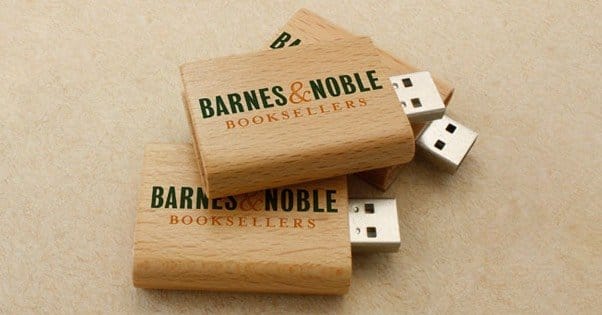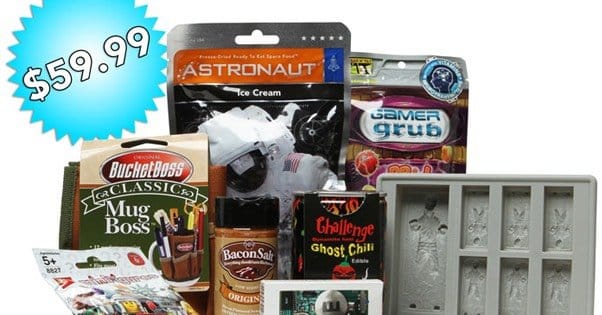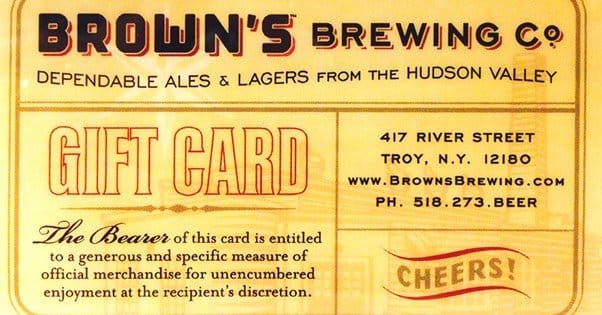 Written by ContentPowered.com
Written by ContentPowered.com
Facebook contests are not tricky to run. All you need to do is put an idea and a prize together and promote it with your audience. Easy Peasy, right?
The hard part is choosing the prize. The type of contest doesn’t really matter; after all, most entry methods work to the same goal – page engagement – so it doesn’t necessarily matter what form it takes. Submit a picture, fill in the blank, sign a form; it’s all the same.
That’s why I’ve compiled this list of possibilities. Of course, the actual prize you choose has a much broader possible range of options. I tried to pick general concepts or options that are, in some way, available to pretty much any business. Your business will have narrow options only you can provide, though, and that makes those options a great choice for prizes.
New Technology
First, let’s start things off with the “bad idea.” Now, giving away a new piece of technology is not necessarily actually a bad idea. It’s just that many marketers rightfully understand that it’s not a good prize in general. Why?
The main reason is the people you attract. If you’re giving away an iPad, the people who come to participate in your contest are the people who want an iPad. You’ll end up posted on SlickDeals and you’ll have hundreds or thousands of people swarming in to fill out the form just for a chance to win. They don’t care about your business; you’re a means to an end. Half the time I wouldn’t be surprised to see the prize up on eBay later that evening.
Conversely, if you’re giving away something brand-relevant that only fans of your brand are likely to want, you’ll have an audience comprised mainly of people who are already fans of yours and who want what you have to give. They’ll stick around after the contest is done, unlike the Slickdeals crowd, which will unfollow you pretty much as soon as the winner is announced.
Now, there’s only one reason I’d advocate giving away a piece of generalized technology, and that’s if you want a lot of people you can take advantage of with targeted advertising. Most of them will disappear after the contest, but some will stick around, and it might be a larger number than if you had run a more brand-specific contest. Or it might not; I have no way of knowing. It all depends on your business and the contest you run.
You could also consider a branded piece of technology, but this isn’t a feasible option for most businesses. If you can partner with a manufacturer to get a branded version of an operating system or installed set of software or something, that works. You can also buy an iPad and install your own software, assuming you’re a software vendor, but at that point you’re not just giving away the item, you’re giving away the product as well.
Your Best Product
You see this one a lot when you’re dealing with tech companies. It seems like once or twice a month, some company is giving away a high end graphics card, process, or full built PC. These are great prizes for these companies, because they’re broadly relevant and they’re brand relevant. Then again, how much does a company like AVA Direct or Compaq need the social media engagement? Who knows. The thing about marketing is that it’s fueled by the greed of everyone involved; there’s no such thing as “enough.”
This is still a great prize idea for pretty much any business. It’s a little harder if you’re a broad department store; what would JCP bill as their best product? They would have to do something per department, for example.
The key to running a contest with a top-end product as the prize is that you should have strict entry requirements. You don’t want people to be able to make dummy accounts to enter. You also don’t want to get virtually nothing out of it. Remember, a contest isn’t you giving something away for free; it’s you crowdsourcing non-tangible profits. You’re not getting money for your product, no, but you’re getting a wealth of engagement, targeting data, personal information, opt-ins, and whatever else you choose to harvest.
A Cheap Product Gift Basket
This is the other end of the spectrum, and works best when you’re a brand that has a lot of various products, none of which are exceptionally expensive. Put together a nice-looking gift box full of small products, as a sampler assortment or as a series of trials.
I love this particular prize for brands that can do it because it has the potential to reach more than just the winner. With a single big prize, the winner is going to love it, but it’s unlikely their reward will spur other people into buying out of jealousy. On the other hand, with a small prize gift box, the winner might not like everything in the box and may give bits of the prize away to friends and family. They might be perfectly willing to keep buying one of the products, and then their friends and family might be convinced to buy as well.
Gift Cards to Your Store
If you have a ton of products, or if you don’t have the budget to give away a larger product, this is a good alternative. A gift card can spur on a lot of little purchases, or it can act as a discount for a single large purchase. Paying $500 for something seems unpalatable to many people, but give them a $100 gift card and they’re a lot more willing to buy that $500 product.
You can even make a gift card more exciting by adding other offers to it. One trick I like to do is make it a cash card instead of a gift card, but offer a 15% or so discount code along with it. The winner can use the card however they wish, but if they shop at my chosen store, they get a discount on top of having the money to spend. It’s a good way to get people to stick around without limiting what they can do with the money you give them.
Discounts to All Participants
This isn’t so much a prize to the winner as it is a consolation prize to everyone involved. Think of it like a general store sale, 5% or 10% off everything in store, but in exchange for that discount the user has to do something. That something is either social media engagement on a Facebook contest, or clicking a link through Facebook to get to the opt-in to claim the discount. In either case, it’s a simple way to get more mileage out of your contest without sacrificing a lot, no more than a general sale in any case.
A Consultation Session
This is a contest prize for people whose presence is valued above their products. People like Jon Loomer or Neil Patel, people whose time is generally more valuable than the software or products they sell. These people can give away special 1 on 1 consulting within their area of expertise. Jon, I know, sells his time as a consultant through his website in class and in solo form. He could give away a session, even a truncated session half the length of a normal session, and it would work excellently as a teaser for what someone might get by buying his time.
Photo: Neil Patel
This generally only works when your opinion is valued at large. If your business doesn’t specialize in a topic or in consulting in general, no one is going to care that you’re consulting as a prize. McDonalds couldn’t give away consulting if it tried, for example.
Branded Merch
This is a common prize for various raffles and spur of the moment contests. It’s pretty easy for a brand to go to a production company and get 100 branded hats or t-shirts printed out for a bulk price rate. They can then store these away and use them as prizes for the occasional contest. No one needs to know that you have 100 of them in a back room; they think it’s an exclusive and rare shirt. And, all things considered, it is; you’re not likely to see them on store shelves, after all.
The fringe benefit of this prize idea is that once you give it away, you typically have someone out and about wearing your prize shirt. This builds brand awareness in a small-scale passive way, though any brand awareness is good brand awareness.
A Partnership Bundle
This one will vary greatly from event to event, and it depends highly on your business relationships. The general idea is that you’re partnering with another business, or even several businesses. Give away a prize composed of items from each participating brand. You can do this in a few ways. The most common one I see is one grand prize with something from each contributor, but I also like to have individual runner up prizes made up of smaller bundles or provided by single businesses.
Say you get four brands to work together with you for a contest. Each one can contribute a large item for a grand prize, and two smaller items for second and third place. Then each can provide 10 minor items for runners up, for a total of 53 different winners to your contest.
This is great because you get a ton of prizes, and you can add up the total retail value of all the prizes and advertise the contest as having “$5,000 prize value!” or whatever the total works out to be.
I recommend using a contest app that gives users entries depending on different actions they can take. Make following the profiles of each brand a possible means of entry, as well as signing up for their mailing lists, and so forth. This gets a lot of engagement value for everyone involved all around.
A Vacation Trip
An all expense paid vacation to an exotic locale – with a bunch of branded items provided as supplies for the vacation, of course – is a time-honored prize. It goes all the way back to contest shows and giveaways from decades ago. A cruise, a 5-day stay in a hotel in the Bahamas, whatever; it gets people away from their dull, boring lives and gives them a taste of the exotic. The only downside to this kind of contest is the sheer expense and organization required to deliver on your prize. The winner is probably going to expect some sort of guidance while on vacation, some kind of support, and you will probably want to provide it.
A Month/Year of Service
This one is a prize specifically for the businesses that lack a physical product but provide a subscription service of some sort. Whether it’s house cleaning, monthly deliveries, a web app or anything else, free time using the service can work as a great lead for renewal.
The important thing here is to avoid entrapping the winner. You don’t want to pull one of those shady “if you don’t cancel within 24 hours we bill you for the next year at the full rate” moves. That will just hurt your brand when the contest winner inevitably makes the rounds on social media telling anyone who will listen.
A Voted For Prize
This one combines a prize with an engagement-boosting voting contest. Get a set of options for prizes, probably pulled from options above, and ask users which one of them will win. Ideally for your users, any vote will count as an entry in the contest. An alternative, though, would be for people to vote for an option, and their vote only counts as an entry for that option. You could do drawings for each prize at the end just to surprise everyone, too.
A Charitable Donation
This is a great one when you want to be philanthropic but you don’t know where to put your money. Start off by saying you have money for a donation — $10,000, or however much you feel is significant – and ask users to submit ideas for charities you could support. Add restrictions if you want, such as charities for animals, charities supporting women in STEM, charities working to cure diseases, or whatever best jives with your business.
After a while, you will have about as many submissions as there are charities. You can then hold a second survey, providing your top 5 or top 10 options, and asking users to vote for which charity will receive the donation.
To make it more of a contest with a winner amongst your audience, you can also just run a drawing and let the winner pick the charity of their choice, again with or without restrictions as you desire.
Pet Items
People love getting things for their pets, often even when they don’t have an interest in your normal products. Unless, of course, you’re a pet shop; in which case people will love your products regardless. Pet items can be great and they attract the attention of pet lovers beyond just your audience. This, though, has the same sort of issues that technology has; you attract people who don’t care about your brand, and who just want pet supplies.
Lifestyle Enhancements
Pick a theme and put together a package that may or may not include some of your own items, tied around that theme. Something like spa days, a nanny night, a landscaping package, spring cleaning supplies, and what have you. Put it all together and run the contest around a relevant holiday and you have a lot of potential exposure. Who wouldn’t like free landscaping during the spring season?
Kids Items
Just like pets, people with kids go crazy over buying kid stuff. Toys, clothes, supplies, whatever. Give away a year supply of formula, or a bunch of clothes, or some high end toys. It really doesn’t matter. Again, though, this has the problem of audience targeting.
There are a ton of other minor options much like pet and kid toys. Wishpond compiled a lengthy list, though with little detail. You can read it over here. I caution you, though, to try to keep within your brand’s circle of interest. The more generalized your prize, the more people you will attract who won’t stay around. Your most beneficial hype leaders and brand advocates will tend to be distressed if a hit-and-run deal hunter wins, which is always a bad feeling. At the end of the day, your choice of prize is yours alone. Just make sure to tailor it to your audience as best you can and you should be good to go.






